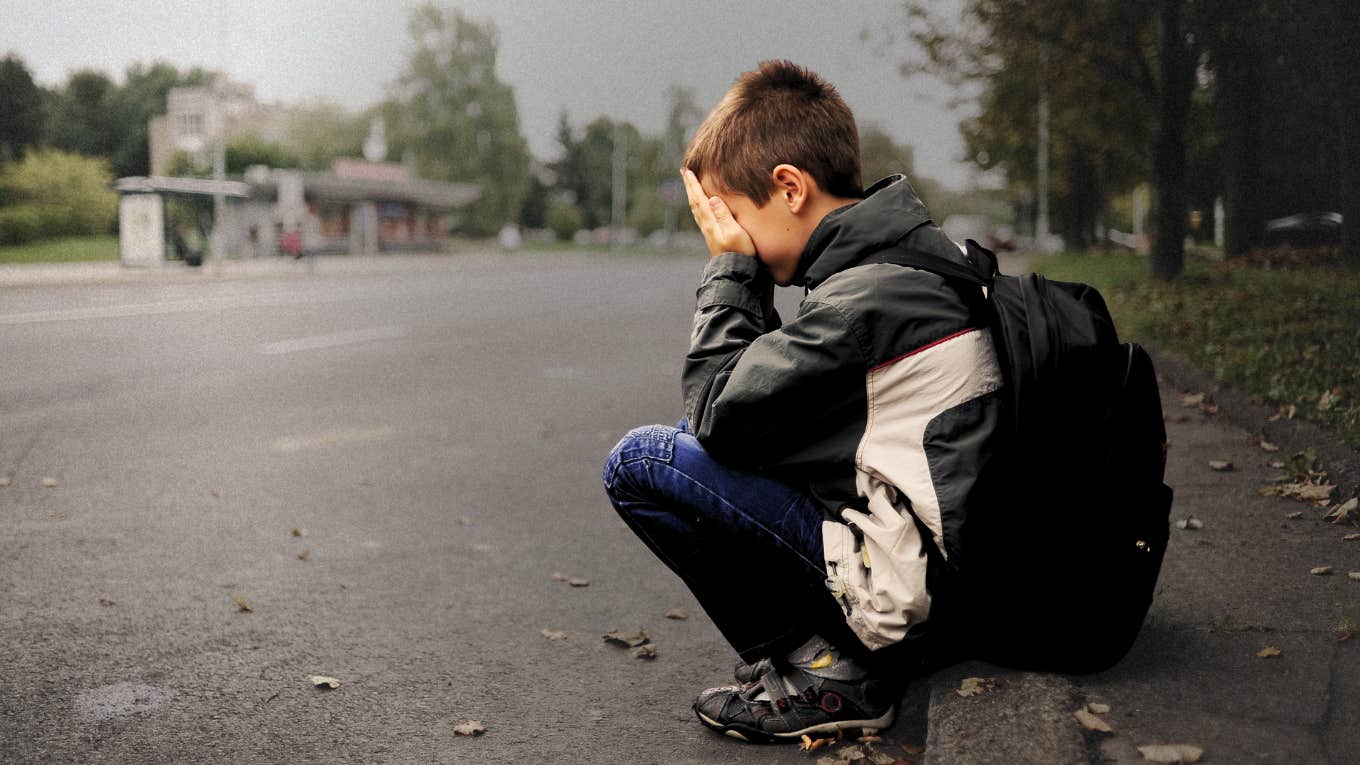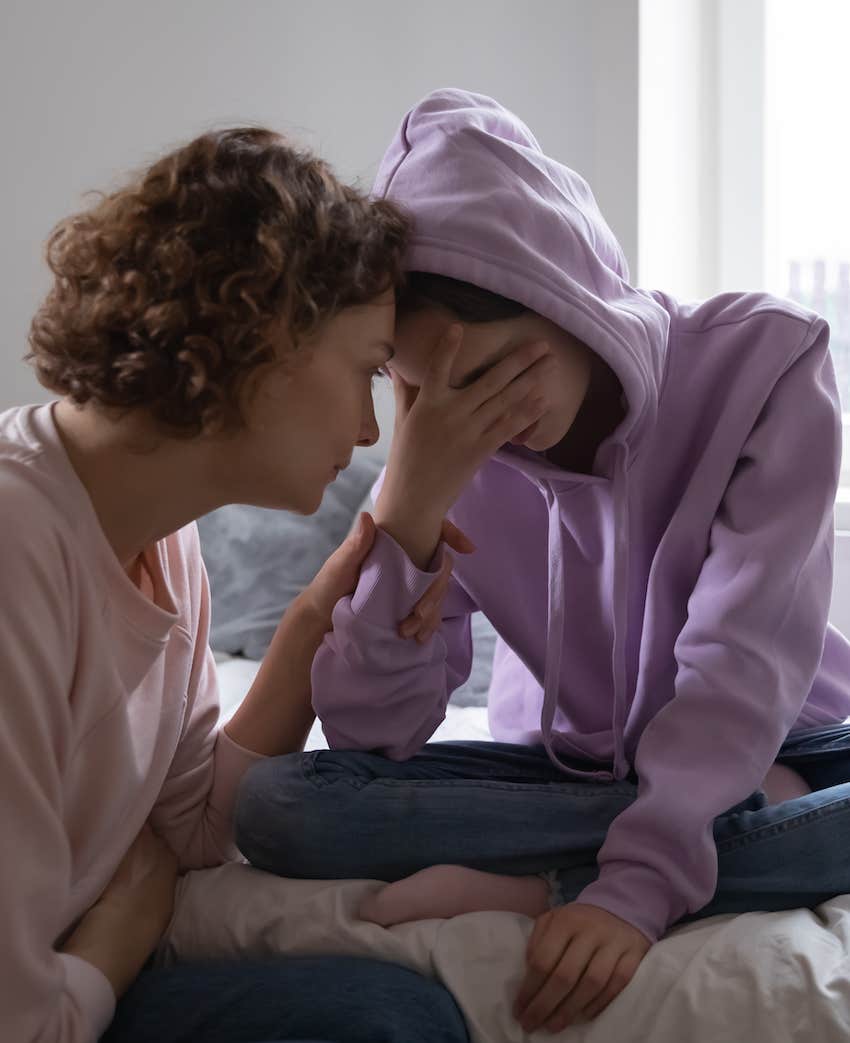12 Alarming Signs Your Child Is Depressed
Don't ignore these warning signs.
 fuzznails | Canva
fuzznails | Canva Depression is a real danger for infants and children. Young ones react to emotional upsets, too. All parents must keep their eyes open for signs of childhood depression, and parents suffering from depression must be even more vigilant.
Infant and child depression is a real thing. Parents may notice a child is sad or withdrawn, and infants or children may exhibit a wide variety of symptoms that are just not right. Childhood depression is a serious condition that requires treatment; it is not just a case of the blues that will go away on its own.
Child depression can come about as a result of separation from a parent or caregiver, illness or injury, and childhood abuse or neglect. Sometimes, strange situations can cause children to experience depressive symptoms, like a car accident or witnessing domestic violence.
The signs of infant and child depression vary, making it hard for parents to detect. What parents notice is their child is upset, sad, or moody. When the changes in an infant's or child's behavior are serious enough to concern parents, it is time to check with a pediatrician or child mental health expert.
Here are 12 alarming signs your child is depressed:
1. Hopelessness and sadness
2. Low energy or fatigue
3. Crying
4. Social withdrawal
5. Difficulty concentrating
6. Appetite and sleep patterns may change
7. Little ones may complain of tummy aches, muscle soreness, or headache
8. Some children become overly sensitive, moody, or angry
9. Falling behind in school
10. Eating disorders
11. Self-harming
12. Suicidal thoughts or behaviors
 fizkes via Shutterstock
fizkes via Shutterstock
Children will not have all these symptoms, but parents will notice some concerning changes. A family history of depression, mental illness, or domestic violence are factors that may increase a child's risk of depression.
The great news is that childhood depression is treatable. If the problem is genetic or biochemical, medications can help stabilize mood. Parents should take caution about the potential dangers of antidepressants for children. Some children react to antidepressants by becoming more depressed and potentially suicidal.
Counseling and psychotherapy support the child and the family to turn things around. Parents can work with their child's pediatrician, counselor, psychologist, and teachers to provide support and move a child toward stability and happiness.
If you or somebody that you know is experiencing a mental health crisis, there is a way to get help. Call SAMHSA’s National Helpline at 1-800-662-HELP (4357) or text "HELLO" to 741741 to be connected with the Crisis Text Line.
Darleen Claire is a Personal Development Coach and Parenting Expert with specialization in Parent and Teacher Education, Clinical Mental Health Counseling, and Exceptional Student Education. She writes, lectures, and trains on effective relationships, healthy families, and great ways to solve behavior problems of children.

